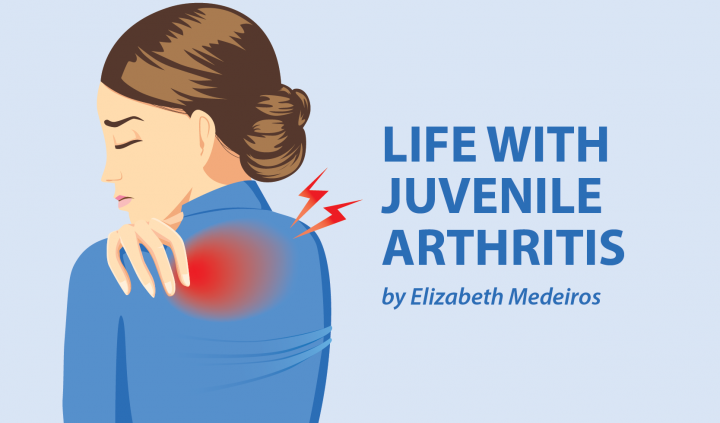It’s hard as a child to deal with bullying. Unfortunately, kids with chronic illnesses can be frequent targets.
Not every child with juvenile arthritis deals with this issue, but some will, due to frequent absences, appearance changes, or an unwillingness to participate in sports, for example.
While parents and school staff do their best to prevent bullying, it happens. In some instances, it may not be obvious, especially if it occurs quietly between false friends or within groups of friends. For that reason, I think it’s important to talk to your child about respect between friends and acceptable behavior.
Intentions matter
No friend is perfect — we all are human and make mistakes. But remind your child that a good friend acts and speaks with their best intentions for you. They’re friends who can laugh and cry with you about JA — they don’t just “put up” with it or make it the butt of every joke.
Kids and teenagers may feel pressure to keep hanging out with friends who make jokes at their expense. Your child may defend their peers and say they’re just joking. It’s natural for kids to accept teasing or bullying to feel accepted. But it’s important to remind them that healthy boundaries are essential for friendships.
Words hurt
Making jokes about JA to lighten the mood can be funny and bring friends closer together. I had quite a few inside jokes with my buddies about how I walk and act like an old lady due to my JA. Those jokes were OK because they didn’t insult me or put me down. They were just funny, and my friends knew when to stop.
Caution your child that real friends don’t make rude comments, pick on a sensitive topic, or make jokes at your expense. A good friend also won’t get overly defensive when you ask them to stop, especially if you explain why.
Actions speak louder than words
You don’t have to listen to what kids are saying to know when they’re not being kind. Please remind your child that their friends’ actions speak volumes. Younger or less mature kids may find it funny to touch a child’s painful joints and watch them flinch or jump. But acts such as physical exclusion can be just as painful, such as when friends walk too fast and leave you in the dust.
I quickly learned that the friends I could count on are happy to slow their pace. They don’t act annoyed that I’m dragging, and they don’t make a scene when they have to wait for me to catch up. It might not sound like much, but it really means a lot.
Friends make us feel safe
Parents, I encourage you to talk to your child about their friendships. Do they make them feel safe and secure? Or do they feel the need to hide their struggles and put on a brave face to be accepted? And is your child letting their friends know how they feel? Asking these questions not only starts a conversation about respect within friendships but also can help your child learn how to talk to their friends about their feelings and establish boundaries.
Growing up, there were plenty of times when I was sick or flaring and I didn’t feel up to seeing certain friends. During those vulnerable times, I surrounded myself with people I felt closest to and who truly sympathized. I noticed that the friends I trusted the most either were from JA camp or helped to care for a disabled or elderly relative at home.
Good friends can get you through the worst of times, and kids with JA need others they can depend on.
***
Note: Juvenile Arthritis News is strictly a news and information website about the disease. It does not provide medical advice, diagnosis, or treatment. This content is not intended to be a substitute for professional medical advice, diagnosis, or treatment. Always seek the advice of your physician or other qualified health provider with any questions you may have regarding a medical condition. Never disregard professional medical advice or delay in seeking it because of something you have read on this website. The opinions expressed in this column are not those of Juvenile Arthritis News, or its parent company, BioNews Services, and are intended to spark discussion about issues pertaining to juvenile arthritis.

